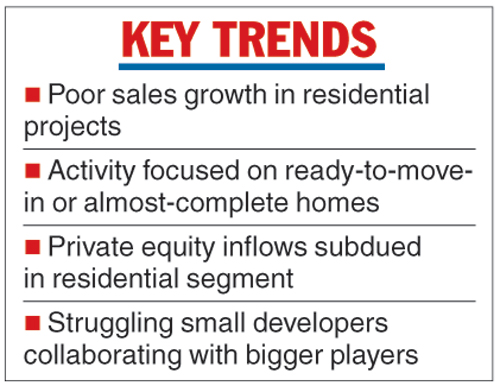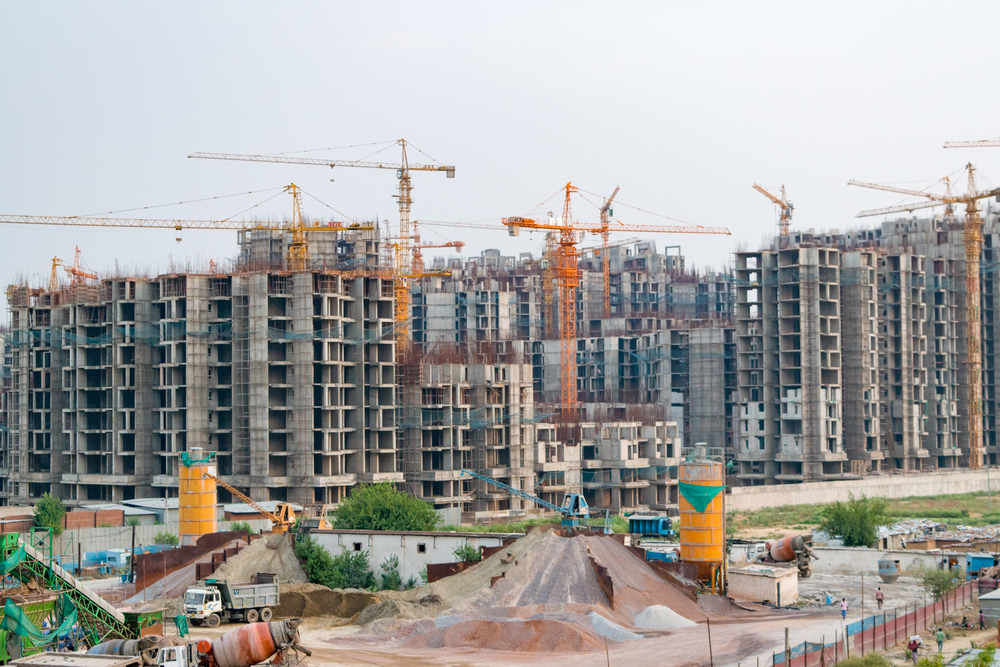The disappointing trend continued in the domestic real estate sector this year with residential projects witnessing poor growth in sales even as other asset classes such as co-working spaces and warehouses attracted slow but steady investments.
For the industry, the only relief came from the commercial office segment, which remained the top-ranking real estate asset class, Anarock Property Consultants said in a note on Thursday.
The real estate consultancy firm said the year was a non-event for the housing sector in terms of sales growth and investor interest.
Sentiments remained subdued and it was only sustained by demand for ready-to-move-in or almost-complete homes.
Anarock said smaller developers continued to perish or collaborate with the bigger players because of extreme financial constraints.
On the other hand, private equity inflows in residential real estate remained subdued with major PE funds focused on the commercial segment.
The only positive development was the announcement of the alternative investment fund of Rs 25,000 crore to facilitate the completion of stuck affordable and mid-segment homes. Moreover, multiple government sops were announced during the year for the affordable housing segment.
“Of the estimated 2.3 lakh units launched in 2019 in the top seven cities, nearly 40 per cent, or around 92,000 units, were in the affordable segment, followed by the mid segment with a 33 per cent share,” Anarock said.
The luxury and ultra-luxury segments accounted for the least share with 10 per cent (around 23,000 new units).
Overall housing sales this year saw a modest 4-5 per cent annual growth with over 2.58 lakh homes sold during the year. Over 2.48 lakh housing units were sold in the previous year.
Housing launches in the year saw 18-20 per cent annual growth, at 2.3 lakh units, Anarock said.

The Telegraph











